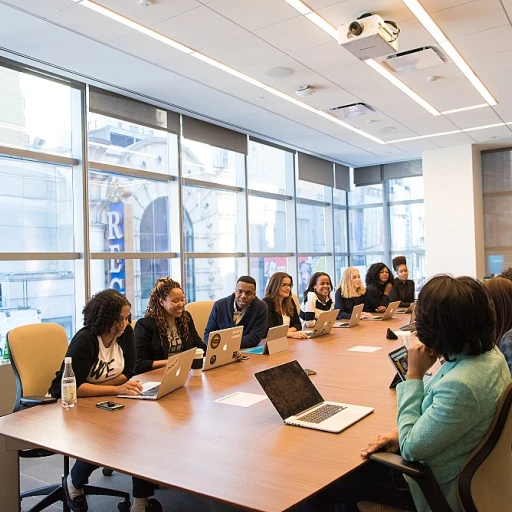
Understanding Employee Appreciation Cards
Understanding the Significance of a Small Gesture
In the fast-paced world of modern business, simple acts of kindness can often be overlooked. Yet, when it comes to fostering a great workplace environment, employee appreciation stands out as a powerful tool. The use of appreciation and greeting cards is a classic yet effective way for a company to convey gratitude and recognize the efforts of its staff. These seemingly low-cost gestures can go a long way in strengthening bonds within the office.
Employee appreciation cards, whether they are personalized for birthdays, work anniversaries, or even to express gratitude on Boss Day, serve as tangible reminders of appreciation. Unlike verbal recognition, a card is something an employee can hold onto, creating a lasting impression. The personalization options are vast, allowing businesses to tailor messages that resonate with their team members, making each card feel special.
Creating a Personalized Experience
Adding a personal touch to recognition goes beyond merely signing off with "Sincerely." Including specific achievements, such as contributions to a project or outstanding customer service, can make a greeting card resonate profoundly. Personalized holiday cards or encouragement cards can act as morale boosters, especially during peak business seasons when stress levels are high.
Furthermore, coupling these cards with small tokens or gifts employees admire enhances their impact. These could range from low-cost gifts like a coffee card or a note saying, "You're a great part of our team!", to more tangible gift ideas aligned with the recipient’s interests. Discover some thoughtful Thanksgiving gifts that can accompany your cards to communicate value and appreciation.
The Role of Appreciation in Employer Branding
The Value of Being Thankful
Implementing employee recognition strategies within an organization is becoming an indispensable tool in today's competitive job market. Leveraging appreciation practices, like employee appreciation cards, plays an integral role in shaping your company's employer branding. As organizations strive to attract and retain talent, the power of appreciation should not be underestimated. Acknowledging employees' efforts and celebrating work anniversaries, birthdays, and achievements through cards can significantly impact overall workplace morale. An appreciation card, whether it's a simple greeting card or a custom-designed piece, serves as a token of gratitude for an employee’s hard work and dedication. These cards don't just recognize an individual's contributions; they reinforce their importance within the company. When teams feel truly valued, motivation and productivity often increase, and this can be a major advantage in differentiating your company brand from competitors. Employee appreciation helps to cultivate a culture of recognition and can enhance employee satisfaction. It's often the small, thoughtful gestures that can leave a lasting impression. Consider the options for holiday cards during festive seasons or encouragement cards for those who might need extra support. The holidays present a perfect opportunity to generate goodwill within the team, offering an ideal setting for heartfelt gestures that leave both a personal and professional impact. Personalization is key in making appreciation more meaningful. Employers might explore personalized greeting cards for occasions such as Employee Appreciation Day or even Boss Day. Personal touches elevate the act, turning a simple card into a memorable keepsake. Moreover, thoughtful card designs filled with genuine sentiments can amplify the overall effectiveness of recognition programs. Even in a digital world, the tangible nature of appreciation cards can be remarkably powerful. Whether they are delivered in person at the office or sent to employee homes during remote work situations, these gestures help solidify relationships. If you're looking for inspiration, check out some thoughtful Thanksgiving gifts that also complement this approach. All in all, appreciation cards are an easy and cost-effective method to boost employee morale, reinforce positive behaviors, and contribute to a stronger employer brand. They provide a personal touch that is often lacking in the fast-paced corporate world, demonstrating that authentic relationships matter within your organization.Trends in Employee Recognition
Emerging Employee Recognition Trends
In today's dynamic work environment, companies are continually exploring innovative mechanisms to keep their employees motivated and appreciated. One trend that has gained traction is the offering of employee appreciation cards as a valuable recognition tool. The shift from traditional tangible gifts to more meaningful, personalized gestures—such as appreciation cards—highlights a broader trend in employee recognition. Initiatives like greeting cards for work anniversaries, birthdays, or special company milestones bridge the gap between low-cost efforts and high-impact results. By focusing on personalization options, employers create an emotional connection with their workforce, fostering loyalty and engagement. Moreover, employee appreciation extends beyond the boundaries of the office. The rise of digital greeting card platforms has made it easy to celebrate employee achievements from anywhere, making these tokens of appreciation ideal for hybrid or remote teams. Digital cards can feature unique ideas, from video messages to interactive experiences, ensuring a great experience that resonates with employees across different locations. Themed appreciation days or events are also gaining popularity as an effective way to boost morale. These occasions can be synchronized with broader initiatives such as Boss Day or Appreciation Day. Furthermore, organizations are increasingly blending these cards with small, thoughtful gifts. A simple greeting card complemented with a viable gift choice can leave a lasting impression. Finally, businesses continue to brainstorm creative ways to celebrate employees, especially during holidays. From Christmas to Halloween, holiday cards can serve as a simple yet impactful method to recognize employees during festive times. Additionally, these cards can serve as encouragement cards, which motivate individuals throughout the year, enhancing overall employee satisfaction and productivity. For the latest insights into "innovative employee recognition" methods that keep evolving, you can explore examples of exceeding expectations at work.Benefits of Employee Appreciation Cards
Advantages Gained through Employee Appreciation Cards
Using employee appreciation cards brings numerous benefits to your office environment, enhancing both morale and overall company culture. Let's dive into how these cards make a difference.- Boosting Employee Morale: When employees receive greeting cards, whether for their work anniversaries or special holidays, it infuses a sense of belonging and recognition within the team. This acts as a great motivator, encouraging employees to bring their best to work every day.
- Strengthening Bonds: Appreciation cards serve as an easy method to create stronger interpersonal connections. Personalized messages not only show that the company values each employee, but they also foster a closer team spirit. Such simple gestures can significantly reduce turnover rates and elevate employee satisfaction.
- Encouraging Continuous Effort: Recognition is potent. Encouragement cards or notes included in appreciation greeting cards keep motivation levels high, reminding employees that their hard work is noted and appreciated. It's a low-cost strategy to boost productivity and maintain enthusiasm throughout the office year-round.
- Versatile Implementation: Appreciation cards can be versatile, ranging from birthday cards, holiday cards, to unique card ideas that align with company values. An appreciation card does not always need to accompany a physical gift but can stand alone effectively with creativity and sincerity.
- Cost-Effective Investment: With current price considerations in mind, investing in employee appreciation cards is a low-cost yet high-impact option for employee recognition. Personalized greeting cards, combined with thoughtful gift ideas, can make each appreciation day meaningful without stressing the company's budget.
Implementing an Effective Appreciation Card Program
Strategies for a Successful Appreciation Card Program
Implementing an appreciation card program in the office setting can be a game-changer if done thoughtfully. Here are some practical steps and ideas to create a program that resonates with employees and fosters a culture of appreciation. 1. Define the Purpose and GoalsFirst, clarify the objective of your employee appreciation initiative. Are you aiming to boost morale during holiday seasons, acknowledge work anniversaries, or reinforce daily achievements? These goals will guide your appreciation card program. 2. Choose the Right Cards
Select cards that match the tone and culture of your company. Whether you opt for greeting cards for birthdays or holiday cards, ensure they exude warmth and sincerity. Personalization options add a special touch, transforming simple encouragement cards into cherished keepsakes. 3. Incorporate Employee Input
Engage the employees by asking for their opinions and ideas. This could be done through surveys or team brainstorming sessions. When the team feels involved in the planning process, the reception of the program is usually more positive. 4. Ensure Accessibility and Affordability
Keep the current price point reasonable for both the company's budget and the employee's expectations of gifts employees might receive. Cards should be easily accessible, maintaining a stock in the office or providing options for electronic greetings to ensure no one is left out. 5. Create a Regular Schedule
Consistency in recognition makes employees feel valued and appreciated. Establish routines such as celebrating appreciation days, work anniversaries, or specific achievements with cards. Consider having a monthly schedule that highlights different appreciation events. 6. Communicate the Impact
Share stories of recognition within the company, showcasing how receiving a simple appreciation card positively impacts employee morale and encourages teamwork. Highlight the emotional connection that grows when employees are routinely recognized. 7. Measure the Program's Effectiveness
Finally, continuously gather feedback from employees to assess the program’s success. Make adjustments where necessary. Maintaining an open line of communication ensures the program remains effective and relevant. By following these steps, companies can create a great employee recognition culture that utilizes appreciation cards to their fullest potential. This approach helps in maintaining low employee turnover, boosting customer service through contented staff, and nurturing an environment of gratitude.
Case Studies: Success Stories
Real-World Examples of Successful Appreciation Card Programs
In the competitive landscape of modern business, companies are increasingly turning to employee appreciation cards as a strategic tool for enhancing their employer branding. Here are some real-world examples of organizations that have successfully implemented appreciation card programs, showcasing the tangible benefits and positive impact on their teams.
Tech Company Boosts Morale with Personalized Cards
A leading tech company recognized the need to improve employee morale and engagement. By introducing personalized appreciation cards, they were able to celebrate employee milestones such as work anniversaries and birthdays. These cards, often accompanied by small gifts, created a culture of recognition and appreciation. Employees reported feeling more valued and motivated, leading to increased productivity and lower turnover rates.
Retail Chain Enhances Customer Service Through Recognition
A national retail chain implemented an appreciation card program to acknowledge outstanding customer service. Employees who received positive feedback from customers were given greeting cards with personalized messages from management. This initiative not only boosted employee morale but also improved the overall customer experience, as employees felt encouraged to go the extra mile. The program demonstrated that low-cost recognition ideas could have a significant impact on both employee satisfaction and customer loyalty.
Financial Firm Celebrates Holidays with Thoughtful Cards
During the holiday season, a financial firm decided to distribute holiday cards to all employees, each containing a handwritten note from the CEO. This gesture of appreciation was well-received, fostering a sense of community and belonging within the company. The cards holiday initiative was part of a broader strategy to create a supportive work environment, and it played a crucial role in enhancing the company's employer brand.
Manufacturing Company Implements Year-Round Recognition
A manufacturing company took a comprehensive approach by integrating appreciation cards into their year-round recognition program. Employees received encouragement cards for achievements, big and small, throughout the year. This consistent recognition helped to build a positive workplace culture, where employees felt appreciated and motivated to contribute to the company's success. The program's success was evident in the company's improved employee retention and satisfaction scores.
These case studies highlight the power of appreciation cards in creating a positive work environment and strengthening employer branding. By investing in simple yet meaningful recognition practices, companies can foster a culture of appreciation that benefits both employees and the organization as a whole.













